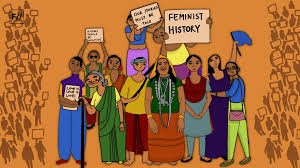Dr Bilawal Kamran
The book is The New York Times bestselling. It is a groundbreaking examination of how the global elite’s efforts to “change the world” maintain the status quo and conceal their role in compelling the problems they later seek to unravel. It is an implied read for comprehending some of the egregious abuses of power that dominate today’s news. Giridharadas takes us into the inner sanctums of a new gilded age, where the rich and powerful fight for equality and justice any way they can—except in ways that endanger the social order and their position atop it.
They rebrand themselves as redeemers of people with low incomes; they lavishly award “thought leaders” who redefine “change” in ways that conserve the status quo and constantly seek to do more right but never less harm. Giridharadas asks problematic questions: Why, for example, should our gravest problems be deciphered by the unelected upper crust rather than the public institutions it erodes by lobbying and escaping taxes? His groundbreaking analysis has already compelled a great, sorely needed reckoning among the world’s wealthiest and those they loom above. It indicates an answer: Rather than rely on scraps from the winners, we must take on the gruelling democratic work of producing more robust, egalitarian organizations and genuinely changing the world—a call to action for elites and ordinary citizens alike.
Please, subscribe to the website of republicpolicy.com
The Elite Charade of Changing the World by Anand Giridharadas is a provocative and critical examination of the role and impact of the global elite in shaping and solving the world’s problems. The book challenges the assumptions and practices of the wealthy and powerful, who claim to be the agents of positive change while preserving and reinforcing the status quo that benefits them. The book also offers an alternative vision of how to truly change the world through democratic and egalitarian institutions and movements.
The book can be critically evaluated from different perspectives, such as its arguments, evidence, style, and implications. Here are some possible points of evaluation:
The book’s main argument is that the global elite’s efforts to “change the world” are a charade that obscures their role in causing the problems they later seek to solve. The book exposes the contradictions and hypocrisies of the elite’s philanthropy, social entrepreneurship, corporate social responsibility, and “thought leadership”, which often justify and legitimize their own privileges and interests rather than challenge or transform them. The book also argues that the elite’s “win-win” approach to change is inadequate and harmful, as it ignores or undermines the structural and systemic causes of inequality and injustice, such as taxation, regulation, labour rights, and democracy.
The book’s evidence is based on extensive research and interviews with various actors and stakeholders in the field of “changing the world”, such as foundation executives, business leaders, politicians, activists, academics, journalists, and ordinary citizens. The book provides rich and detailed examples and anecdotes that illustrate the elite’s worldview, mindset, strategies, and outcomes. The book also draws on historical and theoretical sources to contextualize and analyze the elite’s actions and influence.
The book’s style is engaging and accessible, as it combines journalistic reporting, personal narration, cultural criticism, and political commentary. The book uses clear and concise language, vivid imagery, humour, irony, and sarcasm to convey its message and critique. The book also employs rhetorical devices such as questions, contrasts, comparisons, metaphors, and analogies to persuade and challenge the reader.
Please, subscribe to the monthly magazines of republicpolicy.com
The book’s implications are profound and relevant for both the elite and everyday citizens alike. The book calls for a radical rethinking and reimagining of how to improve the world by rejecting the elite’s self-serving and self-deceiving solutions and embracing the democratic and egalitarian work of building more robust and inclusive institutions and movements. The book also invites the reader to reflect on their own position and role in the system of power and privilege that shapes the world.
Therefore, the book is a must-read and will develop new horizons among the readers.
















